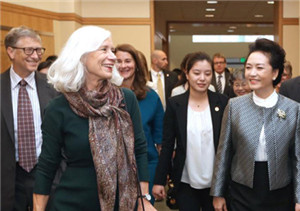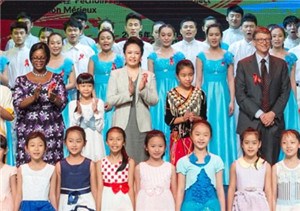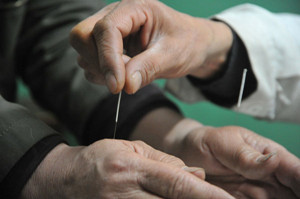HIV is transmitted primarily via unprotected sexual intercourse (including anal and oral sex), contaminated blood transfusions, hypodermic needles, and from mother to child during pregnancy, delivery, or breastfeeding.
In China, there's a worrying new demographic that is increasingly contracting to the virus -- the youth -- especially those in big cities.
 HIV in China
HIV in China
China has 575,000 people with HIV/AIDS
Six out of every 10,000 people in China may be infected with HIV/AIDS, according to official figures revealed.
- The number of people living with HIV/AIDS in China had hit 575,000 by the end of October, with 177,000 deaths.
- Around 8 percent of men who have sex with men in China are living with HIV/AIDS, according to 2015 statistics.
- Sexual transmission is the main infection channel, with infection through heterosexual activities accounting for 66.6 percent of total cases, those through homosexual activities 27.2 percent, while mother-to-child and drug needle infection rates are low.
- Infections among young people have become particularly noticeable, as 2,662 new cases of students living with HIV/AIDS were reported from January to October, a surge of 27.8 percent year on year.
China sees growth in HIV transmission via gay sex
- Men who have sex with men (MSM) account for an increasing share of new AIDS transmissions in China, according to data released by major cities in advance of World Aids Day.
- About 96 percent of new HIV infections in Beijing in 2015 were transmitted through sex, and 74 percent of new cases occurred through MSM. In Shanghai, 66 percent of sexually transmitted infections of HIV in 2015 took place through MSM. The number in Hunan Province is 70 percent.
 Lack of HIV Prevention Education
Lack of HIV Prevention Education
The number of high school to colleague students in China that are HIV positive has risen by 35 percent every year over the past five years. Sex is the main means of transmission among HIV positive teenagers, among which transmission between males makes up the majority of cases.
The National Health and Family Planning Commission released a report on the state of the Chinese families on May 13. The report was based on a survey of over 32,500 families in 31 provinces and cities in China. According to the findings, the average age of first time sex is 15.9 years old, but only 26.7 percent of them used contraceptives. Additionally, the report pointed out that about three fifths of teenagers aged between 14 and 17 did not know about contraceptive methods.
- Geographically, the provinces of southwest Sichuan and east Jiangsu and the capital Beijing reported most student cases.
- Of detected student sufferers, 83 percent are undergoing antiretroviral therapy and more than 90 percent are covered by follow-up services such as disease development surveillance and behavior intervention.
Both figures are higher than non-students of the same age, said Zhao Yan, deputy director of the AIDS Treatment and Care Division of the National Center for AIDS and Sexually Transmitted Disease Control and Prevention.
 Ending AIDS is not an unreachable goal
Ending AIDS is not an unreachable goal
China's efforts in fight against AIDS
- First lady Peng Liyuan is an goodwill ambassador of the World Health Organization for tuberculosis and HIV/AIDS. She made her first appearance during the state visit to the United States by exploring cutting-edge medical research addressing these health issues at an institute in Seattle.
- Chinese Premier Li Keqiang has promised more initiatives to prevent and treat AIDS in order to limit its spread. An action plan for AIDS prevention and treatment for the 13th Five-Year Plan period (2016-2020) will be formulated.
TCM to play bigger role
- The sex-booster herb Schisandraceae, widely used in traditional Chinese medicine for 2,000 years, has shown promise in treating HIV/AIDS.
- Several derivatives of the herb's lignin, which is the compound extracted from the leaves and stems of the woody vine plant, have strong anti-HIV properties and low toxicity, according to Sun Handong, an academician at the Chinese Academy of Sciences who led the research.





















































